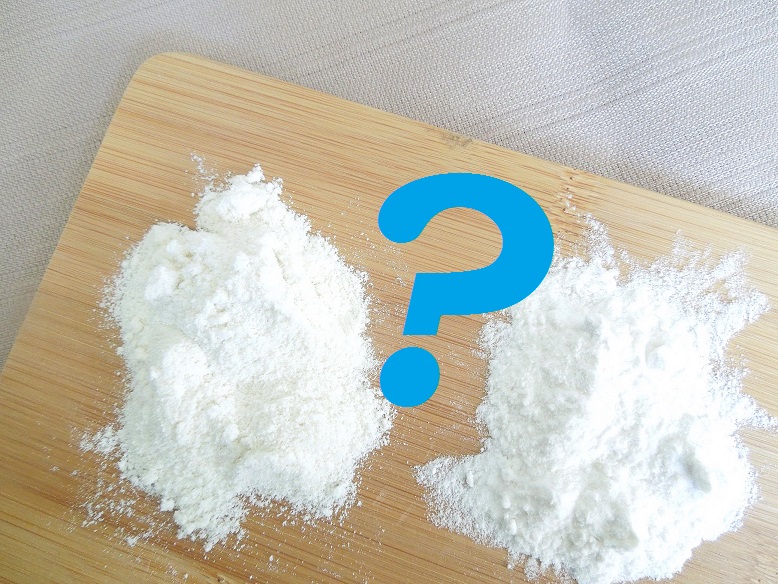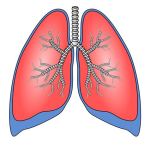Natural Immune System Boosters

Before we start exploring natural immune system boosters we need to clearly define the word "natural".
The online Webster Dictionary provides the following definitions:
Natural– 1. existing in nature or created by the forces of nature, in contrast to production by man; 2. not artificial, foreign, assumed, put on, or acquired; 3. not made, manufactured, or processed by humans; 4. opposed to artificial, man-made, manufactured, processed, or synthetic; 5. in the same state as that existing in nature.
These definitions help us realize that when we are considering truly natural immune system boosters we have only two choices:
- unprocessed foods
- substances naturally occurring in these foods, as well as in medicinal plants, that were carefully extracted, minimally disturbed and prepared for consumption to remain in the same state as existing in nature
Why is it important to understand these definitions? Because many substances that naturally occur in nature and are proven to be beneficial for boosting immune health can also be synthesized in a lab, and then labeled “natural” and marketed to you as such. Some examples are melatonin, l-cysteine, n-acetyl-cysteine (NAC), l-glutathione, SAMe, ascorbic acid and other synthetic vitamins. Being unaware of the difference places you in danger of consuming something that may put additional strain on your immune system.
When talking about natural immune system boosters it is easy to identify the most important one - glutathione.
It is a medical and scientific fact that the cornerstone of immune health is your available intracellular glutathione. It is not exotic berries, not grape seed extract, not green tea, not red wine, not shiitake mushrooms, not any other substance or ingredient (although they do contribute antioxidant power and various phenolic and flavonoid compounds). It is your own glutathione that keeps all your cells in proper working order, including your immune cells.
Glutathione is naturally produced in each and every cell of your body. It is your body’s own master antioxidant (other antioxidants do not work without it), major detoxifier, protector and enhancer of immune cells, DNA repairer and energy booster. Without glutathione cells simply die. High levels of glutathione mean a strong immune system, better defenses against viruses, bacteria and other pathogens, increased energy levels and slower aging.
Here we will discuss natural immune system boosters that are proven to raise your glutathione levels, and also - other natural substances and foods that are known to stimulate glutathione production and promote stronger immune health.
1. First of all, you need to know that all research done before 2013 showed that man-made oral glutathione does not increase glutathione levels in healthy adults. Only one recent study concluded that a specific oral glutathione brand can raise glutathione after 6 months of daily supplementation, and only in blood plasma which has an insignificant effect on immunological parameters. For more details on oral glutathione and research updates visit our Oral Glutathione page.
2. Glutathione naturally occurs in many foods. Since glutathione is a protein molecule, the problem with dietary glutathione is that most of it gets broken down in the digestive tract into its amino acid components – glutamate, glycine and cysteine. Only very small amounts of protein-bound glutathione (as part of larger protein molecules) make it into the blood stream, but it cannot effectively raise and maintain glutathione levels, especially long term.
Nevertheless, it is wise to regularly include foods with glutathione into your diet – simply because they are good sources of amino acids and also provide vitamins and minerals which act as cofactors of glutathione production (more on cofactors below). The amount of glutathione in foods varies depending on freshness, ripeness and the degree of cooking.

Foods with the highest glutathione content:
Vegetables - avocado, asparagus, cauliflower, raw spinach, broccoli, tomatoes, acorn squash, potatoes and okra.
Fruit - all melons, all citrus fruits, strawberries and peaches.
Nuts - only walnuts.
Some foods contain phenolic substances that indirectly stimulate glutathione production and activity of glutathione enzymes.
Foods that stimulate glutathione production: broccoli, cauliflower, Brussels sprouts, cabbage, raw spinach, raw parsley, garlic, spices – turmeric, cinnamon and cardamom.
3. Glutathione is manufactured directly inside the cell out of three glutathione precursors – amino acids glutamate, glycine and cysteine. The first two are abundant in food (eggs, meats, fish, dairy and protein rich plants). Cysteine, however, is scarce in foods. In addition, not all forms of cysteine are equal. It HAS to be in a form that can survive digestion and enter a cell. Natural bioavailable cysteine, as the dipeptide form named "cystine" that can enter a cell and be used to form glutathione, is only present in a very limited number of raw foods (heat and processing destroy molecular sulfur bonds in cystine):
- raw unpasteurized milk
- raw unpasteurized cheese
- raw unpasteurized yogurt
- raw unpasteurized kefir
- raw egg whites
- undenatured whey proteins– unheated, unpasteurized milk whey proteins that were carefully cold-filtered to preserve fragile molecular sulfur bonds in cysteine that can be used by cells to manufacture glutathione.
Pasteurization of dairy products has taken bioavailable cysteine out of the human diet, making it extremely difficult to provide enough of this crucial amino acid for intracellular glutathione production, thus weakening the immune system.
4. Natural immune system boosters also include cofactors of glutathione production – certain vitamins and minerals without the adequate amount of which your body cannot produce glutathione, and glutathione enzymes do not work properly. All these cofactors are listed below, as well as the best natural foods they can be found in:

- Vitamin C – yellow and red bell peppers, kiwi, oranges, lemons, raw spinach, raw parsley, black currants, broccoli, cabbage, dietary supplements with camu-camu fruit, acerola cherries and/or rose hips (in powdered or juice form).
- Vitamin E – avocado, olives, olive oil, almonds, sunflower seeds, wheat germ.
- Vitamin B1 (thiamine) - eggs, pork, whole grains, brewer's yeast, oatmeal, brown rice, flax seeds, asparagus, kale, cauliflower, beans and peas, flax seeds, raw garlic.
- Vitamin B2 (riboflavin) - organ meats (liver, kidneys and heart), eggs, milk, cheese, oily fish, spinach, green peas, almonds, raw garlic, flax seeds.
- Vitamin B6 (pyridoxine) - chicken, fish, organ meats (liver, kidney), pork, eggs, brewer's yeast, bananas, avocado, spinach, raw garlic.
- Vitamin B9 (folate) - spinach, turnip greens, lettuce, dried beans and peas, sunflower seeds, peanuts, avocado, asparagus.
- Vitamin B12 (cobalamin) - liver and organ meats, muscle meats, fish, eggs, shellfish, milk and most dairy products (B12 is found exclusively in animal products; vegetarians and vegans must supplement).
- Selenium – brazil nuts, tuna, halibut, salmon, chicken giblets, whole wheat.
- Magnesium – pumpkin seeds, squash seeds, sunflower seeds, butters made out of these seeds, flax seeds, buckwheat flour and buckwheat groats, pure coconut water, raw garlic.
- Zinc – oysters, red meats, giblets, buckwheat flour, beans, barley, flax seeds, raw garlic.
5. Other natural immune system boosters are:
Melatonin – a hormone and a potent antioxidant that your brain produces while you sleep. That is why it is important to get at least 7-8 hours of sleep in a pitch black room – light drastically reduces melatonin production. Melatonin is scientifically proven to significantly raise blood glutathione levels. Melatonin in pill form, sold as a sleep aid, is synthetic and NOT a natural product, no matter what is stated on a bottle – I am not considering this kind of melatonin. Natural melatonin is abundant only in tart (sour) cherries and tart cherry juice concentrate, especially in Montmorency variety. Some other foods have very small amounts of melatonin in them as well: walnuts, mustard seed, corn, rice, ginger root, rolled oats, peanuts, tomatoes, bananas.
Milk thistle – silymarin, an active component of milk thistle known to prevent lipid peroxidation, maintain GSH levels, and stimulate the growth and regeneration of damaged liver cells. Liver is the largest store of glutathione in the body and the main detoxification organ. Supplementation with milk thistle should be approached with caution, especially in the presence of liver diseases. Usual dosage is 200 mg a day.
Astaxanthin – a carotenoid and a powerful antioxidant found in salmon, shrimp, lobsters and certain algae to which it gives their distinct pink-orange color. Due to its molecular structure, it is able to act as an antioxidant both inside and outside of the cell. Astaxanthin is scientifically proven in animal studies to enhance the activity of glutathione enzymes, significantly reduce oxidative stress and to act as a powerful anti-inflammatory. It is impossible to obtain enough astaxanthin from diet alone. Supplementation with 4-12 mg a day may be beneficial. More details can be found on our page Astaxanthin and Glutathione.
Vitamin D – sunshine is indispensable for maintaining strong immune health, and it is free! 15-20 minutes daily with as much bare skin as possible in midday sun during late spring and summer months. Supplementation is still necessary the rest of the year. Dr. Cannell of Vitamin D Council recommends a minimum of 4,000 IU a day up to 10,000 IU a day for optimum immune health.

Echinacea – an herb well known for its immune boosting properties. However, the exact mechanism of its action has not been identified yet. Echinacea is available powdered in capsule form, as a root / aerial parts tincture, tincture in capsule form, or as one of the ingredients in throat sprays. Tinctures and liquid capsules are considered more potent. Echinacea should be used at the very first signs of a cold such as sore throat and/or sneezing. Several drops can be administered directly or added to warm water or tea, 3 times a day. Capsules can be taken every 2-4 hours. Echinacea can only be used for 5-7 days because the body gets used to it and does not respond any more – it is useful for a short term immune boost.
Elderberry – a bush that produces small dark berries ready to harvest in the fall. It grows in North America, Europe, North Africa and Western Asia. Elderberry is well known for its immune boosting properties, especially its remarkable ability to prevent flu and cold viruses from spreading rapidly in the body. Scientists have not identified the exact mechanism of its action, but hypothesize that elderberries release special compounds that coat viruses and this way prevent them from penetrating and infecting healthy cells. In addition to this ability to thwart viruses, elderberries are also a source of potent antioxidants, flavonoids and anthocyanins that improve the production of cytokines – protein messengers that improve immune response (Barak V, Halperin T, Kalickman I. The effect of Sambucol, a black elderberry-based, natural product, on the production of human cytokines: I. Inflammatory cytokines. Eur Cytokine Netw. 2001 Apr-Jun;12(2):290-6.). Another study confirms the efficacy of elderberries in combating viral infections: flu symptoms were relieved 4 days earlier on average in subjects taking elderberry extract compared to those taking placebo (Zakay-Rones Z, Thom E, et al. Randomized study of the efficacy and safety of oral elderberry extract in the treatment of influenza A and B virus infections. J Int Med Res. 2004 Mar-Apr;32(2):132-40.). Elderberries were successfully used during the outbreak of influenza B virus in Panama in 1995. Elderberries are available as tinctures, juice concentrates, syrups, and in capsule form. This natural immune system booster is a must-have, especially during fall-winter flu season.
Honey (raw) – raw, unpasteurized, unfiltered honey possesses anti-bacterial, anti-septic, anti-fungal properties. It is also a good source of antioxidants and enzymes; it contains small amounts of vitamins B1, B2, B6 and vitamin C, traces of magnesium, potassium, selenium and other minerals. Honey is acidic; however, it is classified as an alkaline forming food, just like lemons and apple cider vinegar. One tbs. of honey can be diluted in 8 oz. of warm water with the juice of half of a lemon and/or 1 tbs. of raw unfiltered apple cider vinegar as an immune boosting tonic to be used at the first signs of a cold. Pasteurized and filtered honey, often sold in those cute bear shaped bottles, has greatly diminished antioxidant, vitamin and mineral content and does not provide immune boosting benefits. Actually, it can do just the opposite – it can suppress immune system, because factory honey bees do not have enough access to flower nectar and are often fed high fructose corn syrup or sugar which alters the chemistry of the end product (may it be called "high fructose corn honey"?). Supermarket honey can still be used as a natural anti-bacterial substance.
Garlic (raw)– when raw garlic is crushed or chewed, its cells release a natural antibiotic and anti-fungal compound allicin that helps fight off infections. Garlic also provides the body with much needed sulfur-containing compounds, alliin and S-allylcysteine, which help stimulate glutathione production and, as a result,-the immune system. In addition, raw garlic is rich in almost all glutathione cofactors - vitamin C, B1, B2, B6, magnesium, zinc and selenium, as well as other vitamins and minerals (B3, B5, calcium, iron, phosphorus, and potassium).
Chicken soup – as unbelievable as it may sound, chicken soup’s ability to relieve the symptoms of a cold and speed up recovery is not just a grandma’s tale. Research has proven that hot chicken soup increases nasal mucus velocity and possesses anti-inflammatory activity, namely, through the mechanism of the inhibition of neutrophil migration (Studies: Saketkhoo K et al. Effects of drinking hot water, cold water, and chicken soup on nasal mucus velocity and nasal airflow resistance. Chest.1978 Oct; 74(4):408-10;Rennard B, Ertl R et al. Chicken soup inhibits neutrophil chemotaxis in vitro. Chest. 2000 Oct;118(4):1150-7; Hopkins AB, Chicken soup may not be a myth. Nurse Practitioner. 2003 Jun;28(6):16). The chicken soup recipe used in research calls for onions, carrots, potatoes, turnips, parsnips, celery and parsley – all of which contribute vitamins, minerals, antioxidants, glutathione cofactors and cysteine (although cysteine is not bonded due to processing) to help the recovery from cold or flu. With all this proof, chicken soup is a great short term immune system booster. Tip: cook with free range organic chicken for the healthiest result.
Probiotics – in the healthy gut hundreds of different types of bacteria numbering in billions work together to break down food into its components. The "busiest" place is the small intestine where the absorption of nutrients also occurs. The delicate balance of these bacteria can be disrupted by antibiotics, insufficient stomach acids or poor diet. The altered balance may promote the growth of unfriendly bacteria and yeasts, such as Candida albicans. When this happens you can’t digest food and absorb nutrients – this includes amino acid precursors of glutathione, cofactors, antioxidants, and other nutrients. The end result is dropping glutathione levels and a weakened immune system. This is where natural sources of friendly bacteria can help – yogurt, kefir and/or a quality probiotic supplement. Store bought yogurt and kefir are not a good option of introducing probiotics into your diet – they are over processed and pasteurized, so the bacteria is added back later and usually only 3-4 strains, plus sugar, artificial flavors, color and other undesirable ingredients, such as aspartame (in sugar free or fat free versions). Yogurt and kefir can be very easily made at home. I have been making my own kefir since 2010 - it is a fermented probiotic milk drink made by communities of lactic acid bacteria and yeasts called "kefir grains". These kefir grains look like soft cauliflower florets, and can be placed in cow's, goat's or sheep's milk to make kefir (choose organic milk). Kefir grains can be purchased online or at a small organic dairy farm locally. All you have to do is put the grains into new milk every 24 hours. If you prefer probiotics in pill or powder form – choose a reputable company that keeps the bottles refrigerated, and make sure the pill or powder also contain nutrition for bacteria to help them regain their foothold in the gut – these are fructooligosaccharides (FOS) that fuel the growth of beneficial bacteria. FOS are present naturally in artichoke flour, garlic and raw honey.
None of the natural immune system boosters works on its own. Not even your own glutathione which depends on other antioxidants, vitamins and minerals for recycling and proper functioning. But there is absolutely no doubt that intracellular glutathione is the cornerstone of immune health.
Raising glutathione should be your priority when considering how to boost your immune system naturally because vitamins and antioxidants do not work without the help of the “master antioxidant” glutathione. Toxins get trapped in the liver. Damaged cells do not get repaired. Pre-cancerous cells do not get eliminated.
Although only very sick people have severe glutathione deficiencies, healthy people are still somewhat glutathione deficient. Why? Because of our inadequate processed food diets loaded with artificial ingredients and chemicals, toxins in our environment, overuse of medications, constant life stresses, and natural decline in glutathione production after the age of 20.
Elevated glutathione levels are essential for immune system both short term, for instance, in order to overcome a cold faster, and long term- to ensure resistance to serious diseases that may develop as we get older.
Further reading:
How to raise glutathione safely and naturally?
Cysteine - the limiting factor in glutathione production.
Return to Top of Natural Immune System Boosters









